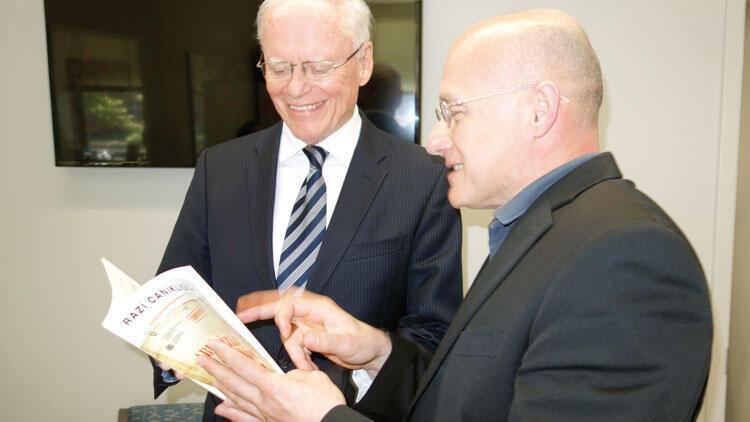
The only way out in Syria is through a political solution with unchanged borders of the war-torn country, a senior U.S. official has said. James Jeffrey, the U.S. Special Representative for Syria Engagement and the Special Envoy for the Global Coalition to Defeat ISIL, said there is close cooperation between Turkey and the United States for the establishment of a constitutional committee tasked with rewriting a new and inclusive Syrian charter.
“We are conducting a political process in which we are closely working with Turkey for accomplishing the constitutional committee while diminishing the military aspect. This is the only way forward and to end the war,” Jeffrey said in an interview with the daily Hürriyet on June 5.
The official position of the Trump administration is to end military operations in Syria and to make no changes in the actual borders of the country, he explained.
The establishment of the 45-member constitutional committee cited by Jeffrey was delayed due to minor differences in its composition since late 2018. Under the Astana Process, Turkey, Russia and Iran tried to broker with different segments of the Syrian regime and opposition groups as well as various non-governmental organizations. Once the committee is formed, it will start to pen the new Syrian charter in line with a political transition period under Resolution 2254 of the UN Security Council.
An immediate issue of increasing concern for the U.S. government is the continued attacks by the Syrian regime and the Russian army in Idlib, Jeffrey stated, describing the assaults as a violation of a deal between Ankara and Moscow.
“We think these attacks are bad because they can lead to the use of chemical weapons. We will retaliate in kind in the case these chemical weapons would be used. This is our first concern,” he explained.
The second concern over Idlib is a potential refugee influx as the province is home to nearly 3.5 million people. Hundreds of thousands of them have already fled the violence, the U.S. envoy said.
“We are concerned that those who live in Idlib would flee to Turkey, west of Syria and even Europe. That could trigger a new refugee crisis,” he said, adding that the humanitarian aspect of the situation is another source of concern.
Safe zone under negotiations
One essential part of ongoing Turkish-American dialogue on Syria is a joint plan to set up a safe zone along the Turkish-Syrian border, Jeffrey recalled, underlining Turkey’s concerns over the presence of the YPG just across its borders.
“We are a good part of the northern Syria. Now, we are in discussions for setting up what we call a safe zone, a safe zone on Turkey’s border but not in the eastern part (of the border). Because Turkey has concerns over the YPG,” the diplomat said.
YPG has links with PKK
A major source of disagreement between Turkey and the United States was the U.S. decision to provide the YPG with heavy weaponry as its major ally in the fight against the ISIL, despite the fact that its NATO ally has long said that the YPG is an offshoot of the PKK and therefore a terrorist group.
Jeffrey, who served in Turkey and in Iraq in the past, has long been one of the most vocal U.S. officials in admitting that the Turkish concerns were right and legitimate.
Reiterating that they know some links between the PKK and its Syrian offshoot, Jeffrey said: “YPG has been an organization always having links at the personnel and at the ideological level to some extent. There are some other organizations who have certain ties with the PKK in Turkey. While you are discussing these ties, we are also discussing, within ourselves, whether these ties are at the party level or individual.”
Discussing Syria issue separately is better
Ties between Turkey and the United States have long been strained due to scores of bilateral matters, including the former’s plans to procure air defense systems from Russia. But Jeffrey recalled that the Turkish government was exerting its utmost effort to separate the Syrian agenda from other troubled issues.
“This is directly related with not only Turkey’s but all the regional countries’ security. Our differences with Turkey on Syria are just about our relations with the YPG and the PYD,” Jeffrey said.